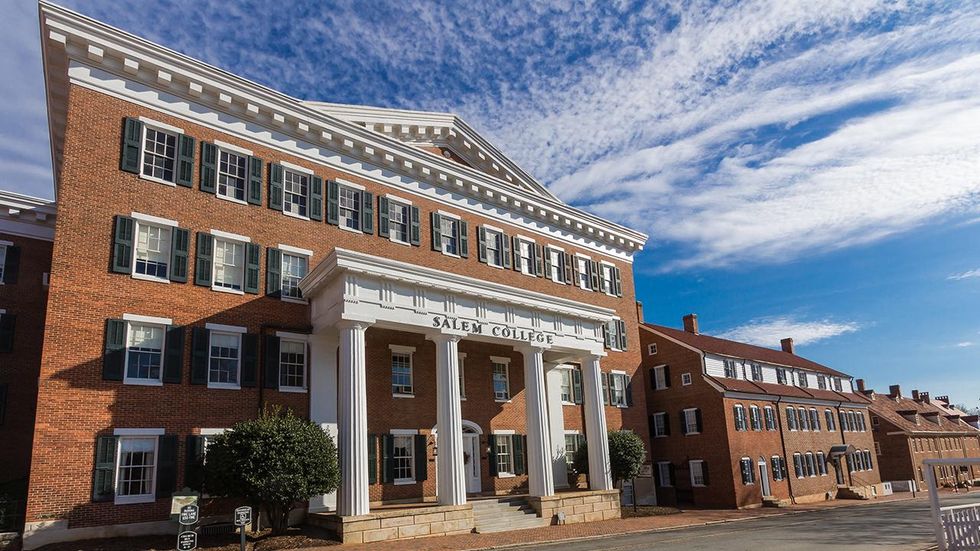
Salem Academy and College in Winston-Salem, N.C. has issued an apology for its involvement in slavery. Shown here is the Main Hall along with South Hall and Single Sisters House. (BSPollard/Getty Images)

Salem Academy and College in North Carolina has issued a formal apology for its role in slavery, which included having slaves on campus as housekeepers and in other roles, the Winston-Salem Journal reported.
In a 13-page report released Thursday, the college details how it “owned and leased” enslaved people.
“Salem apologizes with profound remorse for the use of enslaved labor at the school,” Lorraine Sterritt, president of the academy and college, said. “Understanding our history is critical to understanding our present and guiding us as we look to the future and seek healing.”
The college was the first locally to issue such an apology, the report stated. Nationally, Georgetown University and the College of William and Mary are among a handful of other colleges that have apologized for their involvement in slavery.
Grant McAllister, an associate professor with Wake Forest University’s Department of German and Russian, was commissioned to conduct research on slaves in Salem’s history, according to the report.
“In regard to slave labor, indisputable evidence illustrated that the boarding school first owned and then later leased slaves beginning around 1810,” the report stated. “It appears a slave was owned, primarily for work in the laundry.”
McAllister's goal was to find evidence of either free or slave African American enrollment in the school from 1772 up to the start of the Civil War in 1861.
"Slaves worked in housekeeping, and the practice continued until 1840, according to college ledgers. At that time, the college began paying them a daily wage,” McAllister told the paper.
In one case, a slave owner was able to get one of his slaves, a 10-year-old girl named Hanna, admission to the school. Hanna was listed in the man’s will as one of his possessions. It was not clear in what capacity she attended the school.
Other documents revealed that a 16-year-old slave named Anna Maria was in the school choir, according to the report.
Despite being enslaved, the slaves were allowed to participate in some devotional and choir life like other members of the Moravian protestant church, McAllister told the paper.
“The fact the Moravians embraced slavery, as evidenced through their owning and renting of slaves, must be as much a part of the narrative of their early history in North Carolina as is their history of welcoming slaves into their congregation and treating them as equals before God,” he said. “I sincerely hope my report helps provide a piece of historical context that encourages further examination, transparency, truth, and above all humility.”
Salem is "the oldest educational institution for girls and women in the United States and was founded in 1772, four years before the Declaration of Independence was signed," the report stated.